Minyans for meditation, artists and doubters: How Jewish day schools are reimagining daily prayer
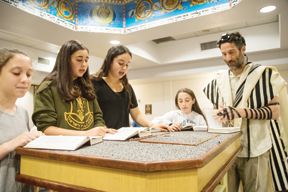

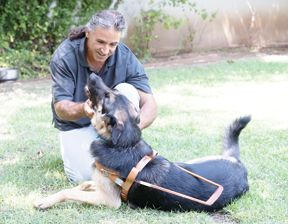
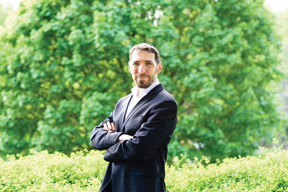
Composer Jonathan Leshnoff likes to take concertgoers on a journey and, he said, if he hasn’t done that, he hasn’t done his job.
Hundreds of people will get an opportunity to take a Leshnoff journey this weekend when the Kansas City Symphony premieres his “Piano Concerto” in Helzberg Hall at the Kauffman Center for the Performing Arts.

Democrat Joy Koesten announced her plans to run for the Kansas Senate, District 11 on Nov. 12.
“Voters deserve a candidate who will not have to constantly endure extreme political pressure to follow their party’s agenda,” Koesten said in an event at the Johnson County Democrats headquarters last week. “They deserve a leader who will always advocate for sound public policy that aligns with the values and priorities of the district.”

JVS LOOKING FOR STORIES — Jewish Vocational Service of Kansas City (JVS) is preparing to celebrate 70 years of service. Founded in 1949 to aid Holocaust survivors and servicemen and women returning from World War II, Jewish Vocational Service has a proud history of service in Kansas City.
JVS now helps diverse individuals and communities, including refugees, immigrants and people with disabilities, become thriving members of the community through its Workforce Development, Community Integration and Health & Wellness programs. JVS’ mission is to engage, encourage and empower people to achieve social, cultural and economic integration, believing all people have intrinsic worth and dignity and all people can flourish with support.
JVS will celebrate its 70th anniversary with its eighth annual Global Table Fundraiser event April 19. For this momentous event, JVS is searching for stories of individuals or families it has served in the Kansas City community since it opened its doors in 1949. If JVS has provided support of any kind to you, a friend or a family member, they would love to hear from you. Support could include employment services or refugee resettlement aid as a Holocaust survivor or upon arriving from the former Soviet Union, among many other forms of assistance.
Contact JVS’ marketing department at or 816-629-8943 with your story or any related information so they can share your story.
JVS’ eighth annual Global Table Fundraiser will be held from 5:30 p.m. to 8 p.m. Sunday, April 19, at The Abbott Event Space, 1901 Cherry St., Kansas City, Missouri. You can purchase tickets or learn more about sponsorship at bit.ly/2CVQKqL.
HALLMARK CHANNEL SET TO OFFER HANUKKAH MOVIES FOR FIRST TIME — Boy was I wrong last week about Hallmark’s Hanukkah movie. In fact, there are two Hanukkah movies this year! Here’s what I hope is the correct scoop, from one of our syndication partners.
(JNS) — The Hallmark Channel will premiere its first two Hanukkah-themed movies next month in honor of the eight-day Jewish holiday, which this year starts Dec. 22, the New York Post reported Nov. 13.
“Our audience is very vocal, and they tell us when they’d like to see more of something,” said Michelle Vicary, Crown Media’s executive vice president of programming. “We’ve heard over the years that they would like to see [a Hanukkah movie] if a script came in that we liked. And that happened this year — twice.”
The first film, “Holiday Date,” airs Dec. 14 and follows Brooke, a woman who experiences a breakup shortly before a trip to introduce her boyfriend to her family for Christmas. She instead goes home with Joel (played by Jewish actor Matt Cohen) who will pose as her boyfriend. Since he has never celebrated Christmas, drama, of course, ensues.
“Unfortunately, they have not discussed if he knows all the traditions,” Vicary said. “As the family becomes more suspicious whether he knows how to celebrate, our two leads begin to fall for each other.”
The second Hanukkah movie, “Double Holiday,” airs Dec. 22. It’s about a Jewish woman named Rebecca whose Hanukkah plans are disrupted when her boss asks her to team up with her rival to plan their office holiday party together.
Vicary said about the characters, “They learn that while the traditions and celebrations are different, the feelings of holiday and celebration and family and togetherness are the same.”
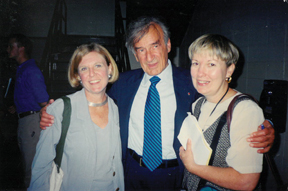
When Midwest Center for Holocaust Education (MCHE) founders Isak Federman, of blessed memory, and Jack Mandelbaum hired educator Jean Zeldin as its first executive director, they placed their vision of a center that would teach the history of the Holocaust in her hands. Twenty-six years later, Zeldin, after guiding MCHE through its infancy and establishing it as one of the most respected Holocaust centers in the country, is ready to pass the torch to another leader, she said.

It’s time to launch the 23rd annual Chanukah Art Contest, co-hosted by The Jewish Community Center (The J), The Shul-Chabad of Leawood and The Chronicle. The winning entries will be revealed on the fifth night of Chanukah in the Dec. 26 issue of The Chronicle.

If you like trying new liquors, here’s one for you — baijiu (pronounced BAI-jo or BAI-gio). China’s most famous liquor has been around for centuries, but is almost unheard of outside of China.
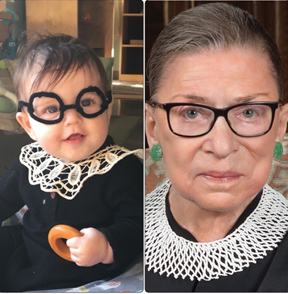
ELECTION RESULTS — Three members of the Jewish community were on ballots in three different cities last year and two of them emerged victorious. Newcomer Jenna Brofsky will join the Fairway City Council representing Ward 4. She garnered 78.21% of the vote, defeating incumbent Adam Dolski, who earned 21.79% of the vote. Dolski has served since May 2017, after having been appointed to fill a vacant seat.
With 41.78% of the vote, Dan Osman was unsuccessful in his bid to unseat incumbent Fred Spears in Overland Park’s Ward 4.
Earlier in the election cycle, we missed that Andrew Osman, Dan Osman’s brother, was running unopposed for re-election in Leawood’s Ward 1. This will be his third term in office.
HALLMARK’S HANUKKAH MOVIES — Jewish fans of Hallmark Christmas movies, as I am, make note that Hallmark’s first holiday movie with a Hanukkah theme premiers at 7 p.m. CST Saturday, Nov. 16, on Hallmark Channel. I don’t know much about it other than if you miss it Saturday night, you can record it or likely catch it a number of other times during this upcoming holiday season.
75 HEADSTONES TOPPLED AT JEWISH CEMETERY IN OMAHA (JTA) — Seventy-five headstones were knocked over and some broken at a Jewish cemetery in Omaha, Nebraska.
The vandals caused more than $50,000 in damage to the gravestones at Temple Israel Cemetery, the Omaha World-Herald reported.
The damage was reported by cemetery officials to police on Nov. 5. The vandals could have caused the damage anytime between Oct. 31 and Nov. 4, according to the report.
There are no suspects, according to Omaha Crime Stoppers, which offered a reward of up to $1,000 for a tip leading to the arrests of the vandals.
The local Anti-Defamation League said in a statement: “As ADL waits to learn more about the nature of this crime, we offer our support to Temple Israel, to law enforcement and to the families who experienced damage to the headstones of their loved ones. This is an inexcusable act in a place where we honor and remember the lives of our community members. Whether or not this was motivated by anti-Semitism, there is no question that it certainly causes deep harm to the Jewish community. We will continue to aid law enforcement in any way we can and support the recovery effort at Temple Israel.”
It’s getting cold out! Jewish Vocational Service (JVS) is accepting new and gently used winter gear donations for its clients, many who will be experiencing their first winter ever this year! Members of the Jewish community can order items from JVS’ Amazon wish list at amzn.to/2NXTclm or drop off winter gear donations at the JVS office at 4600 The Paseo, Kansas City, MO 64110 from 8:30 a.m. to 4 p.m. Monday through Friday. For more information, contact Joseph Lemna at 816-629-8943 or .

When former Missouri Secretary of State Jason Kander stepped out of the public spotlight to seek treatment for PTSD, he found the paperwork process at the Veterans Affairs clinic overwhelming.
He “was looking at the possibility of having to wait weeks to possibly months to start being able to see somebody at the mental health clinic for the VA, the PTSD clinic, and found that even somebody in my position with a phone full of influential contacts and pretty high-level government experience and a law degree that I was a little — I don’t want to say overwhelmed or intimidated — but I was a little blown back by how onerous that process was going to be in aggregate,” Kander said.
